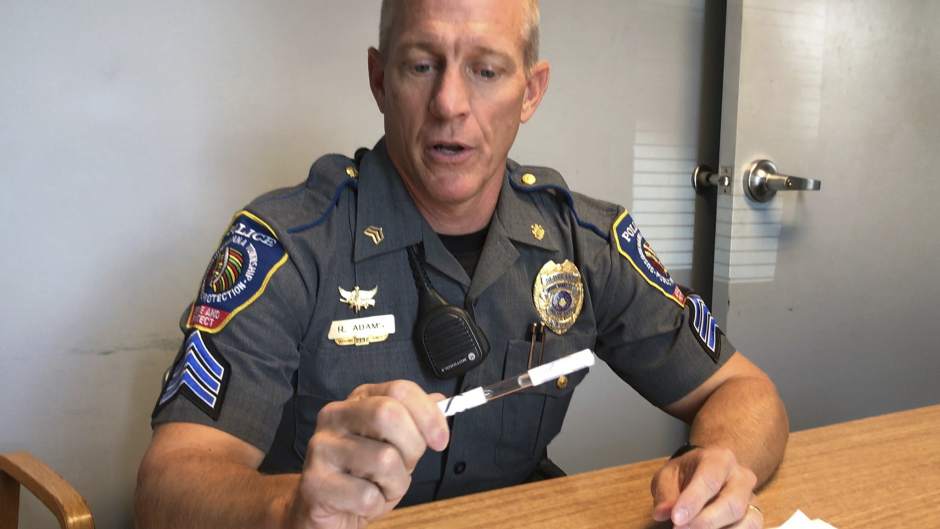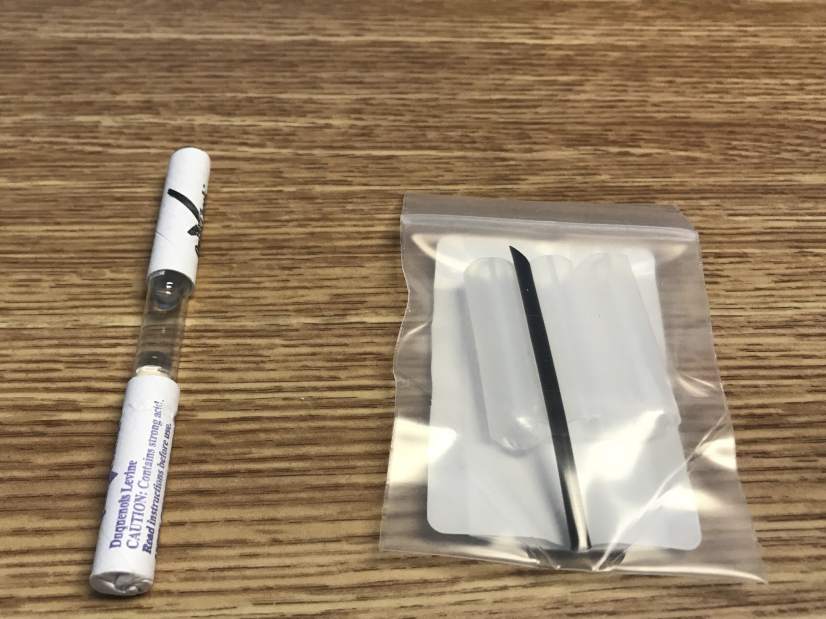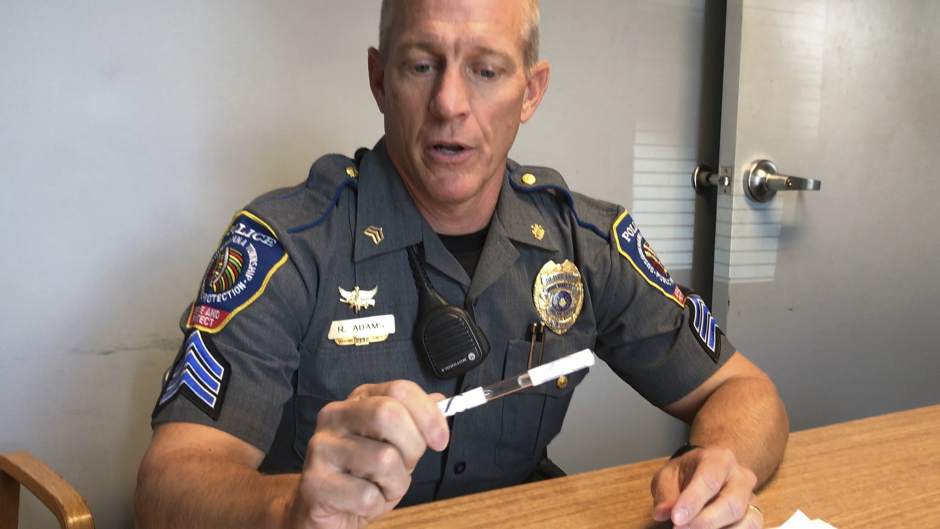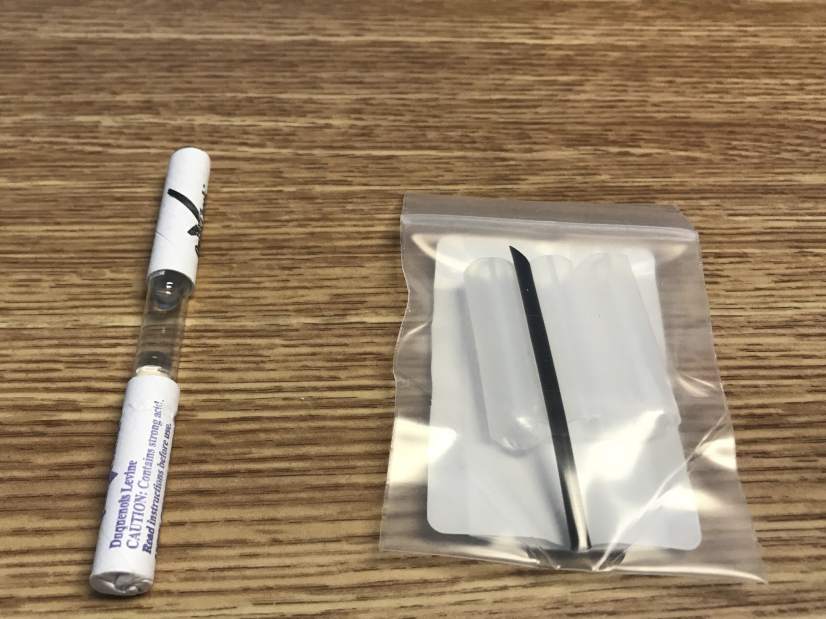Dauphin County cops halt field drug tests over fentanyl
HARRISBURG — Fears about accidental overdoses from fentanyl have prompted police officers across Dauphin County to halt testing of all drugs they confiscate from suspects.
Instead, the substances will go straight to the Pennsylvania State Police lab for testing.
The new policy ends a longstanding practice of officers using field test kits on suspected controlled substances to preliminarily identify them.
The disposable tests use chemicals that interact with known active ingredients in various controlled substances. They indicate positive results by turning bright colors: Green for heroin, for example, and purple for marijuana.
The field test kits are intended to avoid unnecessary arrests and act as a placeholder until the final lab results come back, which can take about two months.
But Dauphin County District Attorney Ed Marsico advised law enforcement agency leaders throughout the county recently that the danger to officers while handling suspected drugs now outweighs any potential evidentiary value from the tests.
The biggest concern is that officers could accidentally inhale the powerful drug or get it in their eyes or mouth.
A veterinarian, for example, who was splashed in the eyes and mouth with the contents of a dart containing 1.5 milligram of carfentanil became drowsy within two minutes and required an antidote to revive, according to a recent position paper by medical professionals about the dangers of fentanyl and related substances for emergency responders.
Marsico was not aware of any other counties in the state taking similar action yet, but at least one official from another Westmoreland County inquired about Dauphin County's new procedures. Upper Burrell and cities including Houston, Orlando and others also have stopped using the tests, which have raised questions separately about false positives.
County judges and magisterial district judges are on board with the new policy Marsico said, which will now focus on officers testifying at preliminary hearings about substances using their training and experience.
“We might see some push back,” from defense attorneys, Marsico said, “But the packaging and appearance can be used to establish a prima-facia case at a preliminary hearing that it is a controlled substance.”
The head of Dauphin County's public defender office, Bradley Winnick, could not immediately be reached for comment.
If the field tests aren't really necessary, then why were police officers even doing them in the first place?
“It was an easy thing to do,” Marsico said, and it added a level of confirmation without any real downsides.
“But now,” he said, “the danger outweighs the value we get from them.”
That's because of the high potency and unpredictability of fentanyl and related substances, which are 100 to 100,000 times more potent than morphine depending on the substance.
The use of fentanyl and related substances has exploded across the Commonwealth, overtaking heroin last year as the number one cause of fatal drug overdoses.
Fentanyl killed 2,395 Pennsylvanians last year. The bright white powder can be folded into white cocaine powder or yellow-tinted heroin and even manufactured into counterfeit pills.
When officers encounter substances on the street, they don't know exactly what they're dealing with anymore, Harrisburg police Lt. Milo Hooper said. They could even encounter carfetanil, a synthetic opioid known as elephant tranquilizer, because it is actually used to sedate wild animals, including elephants.










